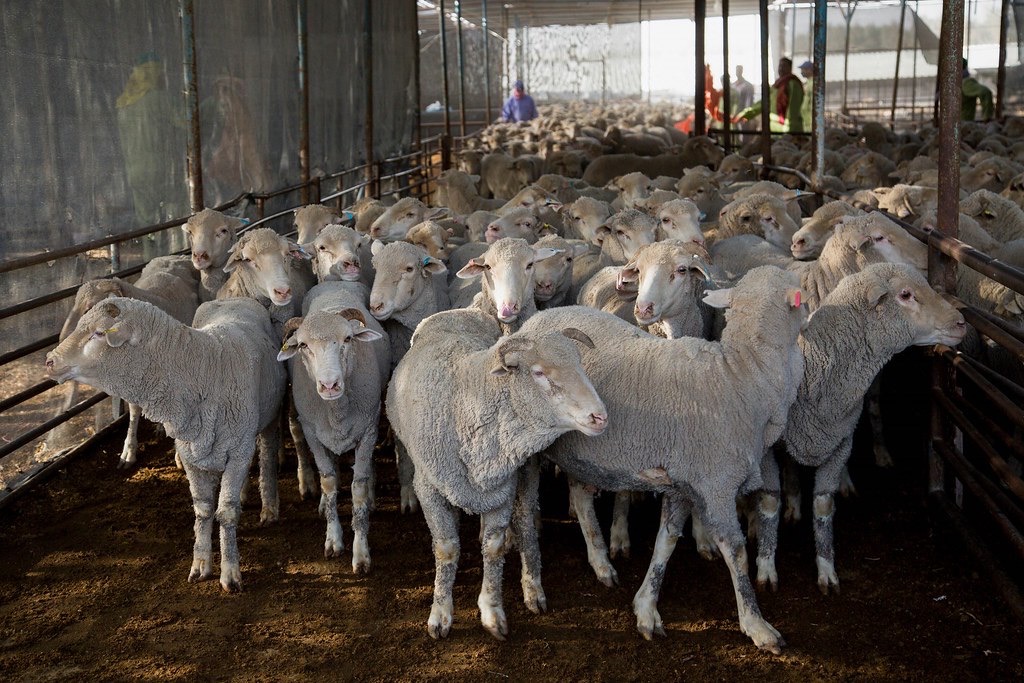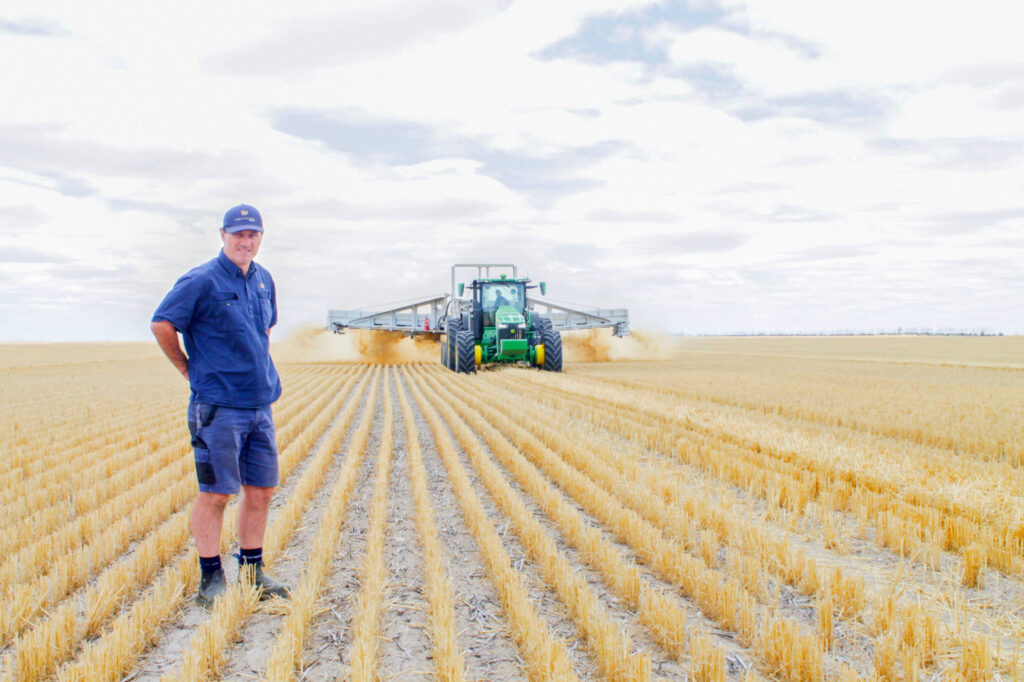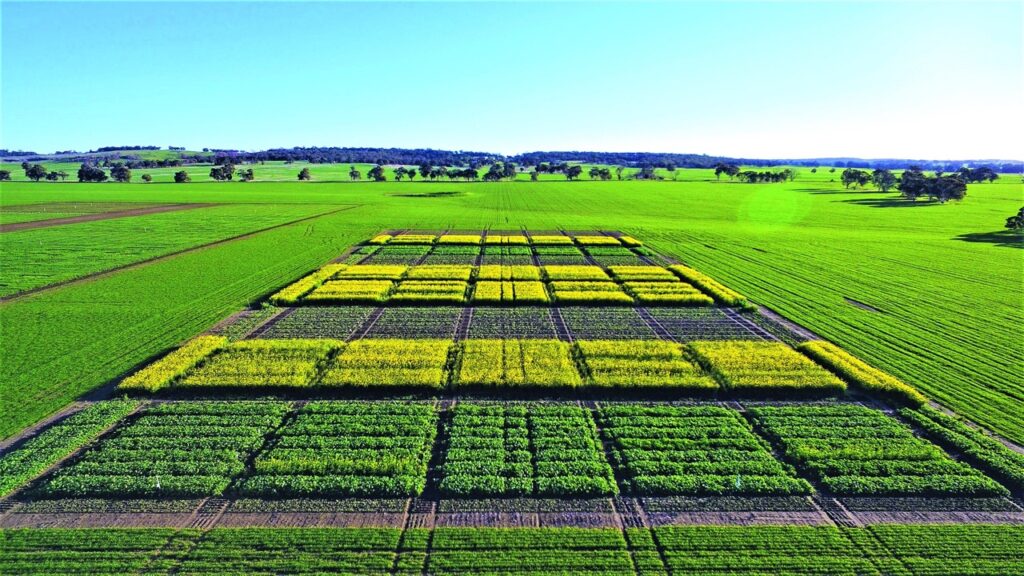Lachlan Hunter and Nationals WA Leader Shane Love. Photo: Supplied.
The weekend’s election results have signalled a growing divide between the political needs of those in the seat of O’Connor and the rest of Australia.
Labor’s landslide Federal victory was reversed with a fifth consecutive victory to Liberals’ MP Rick Wilson in O’Connor, one of Australia’s largest electorates, which has a range of unique critical issues currently impacting its population.
One of these, the ban on live sheep exports, is set to cause heavy job losses in the region amid the cost-of-living crisis.
Before the election, a leaked, confidential draft document revealed the Federal government is organising a $45.5m package for financial advice and business planning, as part of its overall $139.7m budget for phasing out sheep exports.
In contrast to $45.5m sum, one mixed sheep and grain farm 45 km north of Esperance, The Oaks, was recently listed for sale for $50m, and another mixed farming property, Cherylton Farms in the Great Southern region, sold for $100m in 2023.
The $45.5m advice and planning package proposes sheep farmers who have shipped over 1000 sheep per year for the last three years, should get a $40,000 grant to reinvent their businesses, while those allied businesses such as transport could access $30,000.
David Vandenberghe, the Chair of industry advocacy group ASHEEP and BEEF, said the package was so small and inadequate it was as if the government thought that affected businesses were mere hobbyists.
“What the ban has done, apart from putting a huge dent in confidence in the sheep industry, is holding back the store market and therefore even the finished lamb market.” Mr Vandenberghe said.

“The processors are still booked out until July, so that’s the one thing – we’re still having trouble getting lambs in to be killed and this is on top of a fairly poor lambing last year across the state,” he said.
“The fact is that probably the amount of people who are going out of sheep is possibly going to arrest that problem for next year.”
WA Shadow Minister for Agriculture Lachlan Hunter MP described the package as “grossly inadequate,” and he condemned Premier Roger Cook’s “failure to stand up for farmers.”
Mr Hunter said the industry had criticized it as “completely out of touch with the scale of the impact.”

He demanded an explanation from the Premier, in Parliament, about what actions had been taken to secure fair treatment for WA’s sheep farmers, but he said, “there was no clear answer.”
Nationals WA Leader Shane Love slammed Labor’s “betrayal of the bush.”
“This isn’t just about money — it’s about the future of communities built on sheep farming,” Mr Love said.
“The Premier needs to stop sitting on his hands and start fighting for our farmers, who are facing a bleak future without urgent intervention.”
Meat processing problems
The export of live sheep by sea from Australia is presently planned to end on 1 May 2028.
Justifying the ban last year, the former Agriculture minister Murray Watt said the live sheep export industry had declined “from $415m in 2002-03 to $77m in 2022-23.”
Watt had felt the rising demand for processed sheep-meat in Australia and overseas was “an opportunity for more processing to occur onshore in Western Australia, which will mean more local jobs.”
However, serious questions exist over both claims – the capacity to start more processing businesses, and most local sources are citing looming job losses of 3000-3500.
Many say they are already impacting the sector.
Australian Livestock Exporters’ Council Mark Harvey-Sutton CEO last week told the Esperance Weekender that the cost of investing in new processing was “immense.”
The establishment of new local meat processing facilities could cost as much as $500m, Katanning farmer, Peter Rundle MLA said, and in the meantime, delays in processing were impacting revenue and conditions for the sheep.
Mr Rundle said there were presently three large operations and two smaller ones in WA.
Tammin Abattoir has closed down, he said, and ongoing challenges exist around Esperance’s Shark Lake Abattoir, as well.
“It’s actually not that easy to run a processing facility and to start one, you’re looking at probably four or five hundred million dollars,” he said.
The Western Australian Meat Industry Authority told the House of Representatives inquiry at least $435 million would be required to upgrade WA’s meat processing facilities, to compensate for the effects of the ban.
Mr Rundle complained of how a critical shortage of processing facilities meant WA sheep had to face at least a three to four-day trip to the Eastern states for slaughter, which did not equate to “best practice animal welfare.”
The local Esperance community appear to share Mr Rundle’s fears as last month in the Weekender’s Your Thoughts section, three quarters of the people interviewed opposed the ban.
The one person who did support it, specifically cited concerns she had experienced about the sheep’s welfare during road transport.
Delays in meat processing are now such a problem it could take several months until sheep could be slaughtered, according to Mr Vandenberghe.
Mr Harvey-Sutton said that “additional processing is not a cure for the harmful effects of the ban,” and that “markets demand live animals, while also taking boxed or chilled meat.”
“The demand for livestock will continue despite the ban – countries demand live animals for cultural reasons, for genetics and to restock following droughts or disease.”
“Processors also require throughput to sustain their operation,” he said, adding that if farmers get out of sheep due to the loss of confidence in the industry, this has a flow on effect to processors also.
Job losses
Both Mr Rundle echoed concerns about people getting out of the sheep industry, and Mr Vandenberghe said it was already a considerable problem.
“It’s not all about the live export but there’s certainly a percentage of people that that was the straw that broke the camel’s back, so to speak.” Mr Vandenberghe said.
“People are not having confidence in the government to look after our industry and so if you feel like the government is against your industry they start to question why they’re in it.”
“There’s a flow on effect…the people who rely on that industry, the shearers, the contractors, the truckies, etcetera.”
“We’re finding that shearers have got no work all of a sudden.”
“What’s needed is a strong agricultural minister who stands up for the industry.”
“It seems the city has completely forgotten where its food comes from.”
“If they’re quite happy to import all their food from Asia or overseas because it’s cheaper, well maybe that’s the way we’re going.”
The job losses will ensue from the farming sector and across various allied industries, such as pellet and crate providers for ship transport, critics have said.
Mr Rundle said that the cattle export industry was known to piggyback transports from Fremantle, and despite not being subject to a similar life export ban, they also stood to make losses.
He said the ban’s lack of planning had resulted in heavier stress for farmers.
He advised people stressed by the ban to reach out to those around them, their local member of Parliament, and to services like Lifeline.
If you, or someone you know, experience depression or anxiety due to issues raised in this story, support is available from Lifeline on 13 11 14, or by text on 0477 13 11 14.




